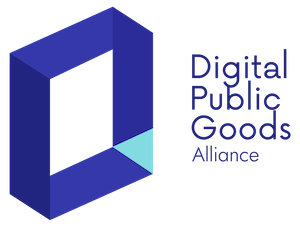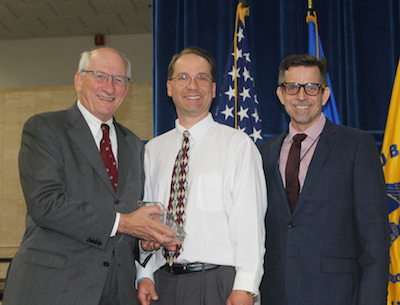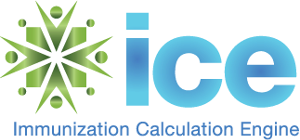HLN Consulting
See the following -
HLN Submits Comments to the CMS Quality Payment Program
 On June 14, 2018 HLN submitted the following comments on the Centers for Medicare and Medicaid Services (CMS) 2019 Inpatient Prospective Payment System Notice of Proposed Rulemaking (NPRM) to Quality Payment Program based on our earlier comments...We are quite concerned by both the overall direction and the specific recommendations regarding public health objectives and measures in the NRPM. Regarding the changes to the proposed measures, CMS has not provided any explanation for why Syndromic Surveillance reporting was selected as the required measure. Other public health measures (e.g., Immunization reporting, Electronic Laboratory Reporting, Electronic Case Reporting) continue to require incentives for implementation.
On June 14, 2018 HLN submitted the following comments on the Centers for Medicare and Medicaid Services (CMS) 2019 Inpatient Prospective Payment System Notice of Proposed Rulemaking (NPRM) to Quality Payment Program based on our earlier comments...We are quite concerned by both the overall direction and the specific recommendations regarding public health objectives and measures in the NRPM. Regarding the changes to the proposed measures, CMS has not provided any explanation for why Syndromic Surveillance reporting was selected as the required measure. Other public health measures (e.g., Immunization reporting, Electronic Laboratory Reporting, Electronic Case Reporting) continue to require incentives for implementation.
- Login to post comments
HLN to Present Innovative Open Source Solutions at HIMSS19 Interoperability Showcase
 For the third straight year, HLN Consulting, a leading medical informatics consulting company, will participate in the Interoperability Showcase at this year's HIMSS19 Global Conference and Exhibition which is being held in Orlando, FL from February 11-15, 2019. The Showcase itself runs on February 12-14 and consists of a series of connected demonstrations which are collaborative projects between 6-8 organizations using interoperability standards to exchange information and improve the quality and value of the care provided. Together they develop a storyline, or scenario, that contextualizes the value of their demonstration and tells the story of a patient, caregiver, or provider. This year HLN will participate in two scenarios...
For the third straight year, HLN Consulting, a leading medical informatics consulting company, will participate in the Interoperability Showcase at this year's HIMSS19 Global Conference and Exhibition which is being held in Orlando, FL from February 11-15, 2019. The Showcase itself runs on February 12-14 and consists of a series of connected demonstrations which are collaborative projects between 6-8 organizations using interoperability standards to exchange information and improve the quality and value of the care provided. Together they develop a storyline, or scenario, that contextualizes the value of their demonstration and tells the story of a patient, caregiver, or provider. This year HLN will participate in two scenarios...
- Login to post comments
HLN's Immunization Calculation Engine (ICE) chosen as a Digital Public Goods Standard
 HLN Consulting is thrilled to announce that the Immunization Calculation Engine (ICE) project has been chosen by the Digital Public Goods Alliance (DPGA) as an innovative openly licensed technology and listed in their Digital Public Goods registry. Technologies included in the list are considered to be digital public goods in alignment with the Digital Public Goods Standard. ICE now appears in the Digital Public Goods registry where it is discoverable as a digital public good and reflected on a growing network of catalogs and aggregated lists of digital public goods.
HLN Consulting is thrilled to announce that the Immunization Calculation Engine (ICE) project has been chosen by the Digital Public Goods Alliance (DPGA) as an innovative openly licensed technology and listed in their Digital Public Goods registry. Technologies included in the list are considered to be digital public goods in alignment with the Digital Public Goods Standard. ICE now appears in the Digital Public Goods registry where it is discoverable as a digital public good and reflected on a growing network of catalogs and aggregated lists of digital public goods.
- Login to post comments
HLN's Open Source Immunization Forecaster Receives 2017 Upshot Award
 On June 6, 2017, HLN was awarded the 2017 Upshot Award for Excellence in Vaccine Supply, Access, and Use by the US Department of Health and Human Services National Vaccine Program Office (NVPO) for its ICE Open Source Immunization Forecaster. In the letter of award, Dr. Jewel Mullen, Principal Deputy Assistant Secretary for Health commented that, "HLN Consulting's efforts on the Immunization Calculation Engine (ICE) are impressive. This powerful tool-including its open-source nature and seamless integration into clinical workflows-holds great promise for improving clinical decision-support and ultimately vaccination rates. Thank you for daring to innovate, collaborate, and lead in an area that is not only complex, but constantly evolving."
On June 6, 2017, HLN was awarded the 2017 Upshot Award for Excellence in Vaccine Supply, Access, and Use by the US Department of Health and Human Services National Vaccine Program Office (NVPO) for its ICE Open Source Immunization Forecaster. In the letter of award, Dr. Jewel Mullen, Principal Deputy Assistant Secretary for Health commented that, "HLN Consulting's efforts on the Immunization Calculation Engine (ICE) are impressive. This powerful tool-including its open-source nature and seamless integration into clinical workflows-holds great promise for improving clinical decision-support and ultimately vaccination rates. Thank you for daring to innovate, collaborate, and lead in an area that is not only complex, but constantly evolving."
- Login to post comments
HLN's Report on Patient Centered CDS Learning Network Conference
 The Learning Network is an initiative funded by the Agency for Healthcare Research and Quality (AHRQ) whose goal is to encourage collaboration and development of tools and resources to support clinical decision support (CDS) as it relates to individual patients and their caregivers. This work is an offshoot of the Patient-Centered Outcomes Research (PCOR) initiative which focuses on the relationship between healthcare providers in patients in making better, more informed, healthcare decisions. A sister project to the Learning Network is the AHRQ-funded CDS Connect Repository which has begun to house shareable CDS artifacts which represent evidence-based standards of care.
The Learning Network is an initiative funded by the Agency for Healthcare Research and Quality (AHRQ) whose goal is to encourage collaboration and development of tools and resources to support clinical decision support (CDS) as it relates to individual patients and their caregivers. This work is an offshoot of the Patient-Centered Outcomes Research (PCOR) initiative which focuses on the relationship between healthcare providers in patients in making better, more informed, healthcare decisions. A sister project to the Learning Network is the AHRQ-funded CDS Connect Repository which has begun to house shareable CDS artifacts which represent evidence-based standards of care.
- Login to post comments
How are Clinical Decision Support Artifacts Tested Today?
 In October 2018 the Centers for Disease Control and Prevention (CDC) issued a Request for Information (RFI) for a Natural Test Collaborative (NTC). Through a series of questions, the RFI seeks opinions and information about "The development of a national testbed (notionally called the National Test Collaborative (NTC)) for real-world testing of health information technology (IT)" and "Approaches for creating a sustainable infrastructure" to achieve it. The scope of this RFI is daunting. It might be useful, rather than to try to tackle this whole topic broadly but superficially, to take just one Clinical Decision Support (CDS) domain and show as completely as possible how testing is currently done.
In October 2018 the Centers for Disease Control and Prevention (CDC) issued a Request for Information (RFI) for a Natural Test Collaborative (NTC). Through a series of questions, the RFI seeks opinions and information about "The development of a national testbed (notionally called the National Test Collaborative (NTC)) for real-world testing of health information technology (IT)" and "Approaches for creating a sustainable infrastructure" to achieve it. The scope of this RFI is daunting. It might be useful, rather than to try to tackle this whole topic broadly but superficially, to take just one Clinical Decision Support (CDS) domain and show as completely as possible how testing is currently done.
- Login to post comments
Immunization Information System Interoperability… What We’ve Learned Along the Way
 The IZ Gateway initiative (IZG) sponsored by the Centers for Disease Control and Prevention (CDC) is up and running. HLN has helped its Immunization Information System (IIS) clients connect to other IIS via the IZ Gateway from planning through testing and go-live. As anticipated, this electronic data exchange has resulted in an increase in record completeness for patient doses received in one jurisdiction, while living in another. Testing between our clients and other IISs, referred to as IIS-IIS pairings, has spurred productive inter-jurisdictional interoperability discussions, while also highlighting nuances in platform configuration. A few of these nuances are provided below.
The IZ Gateway initiative (IZG) sponsored by the Centers for Disease Control and Prevention (CDC) is up and running. HLN has helped its Immunization Information System (IIS) clients connect to other IIS via the IZ Gateway from planning through testing and go-live. As anticipated, this electronic data exchange has resulted in an increase in record completeness for patient doses received in one jurisdiction, while living in another. Testing between our clients and other IISs, referred to as IIS-IIS pairings, has spurred productive inter-jurisdictional interoperability discussions, while also highlighting nuances in platform configuration. A few of these nuances are provided below.
- Login to post comments
Low-cost Aplication Platforms (LCAP): What They Should Mean to Public Health
 Agency budgets continue to run tight, while the demands for data modernization continue to escalate. We are also seeing weakening markets – not strengthening markets – for core public health software systems like Immunization Information Systems (IIS) and Disease Surveillance/case management systems. One of the emerging, promising approaches are Low-cost Application Platforms (LCAP). What exactly are they, where did they come from, and are they a useful strategy for developing core public health applications?
Agency budgets continue to run tight, while the demands for data modernization continue to escalate. We are also seeing weakening markets – not strengthening markets – for core public health software systems like Immunization Information Systems (IIS) and Disease Surveillance/case management systems. One of the emerging, promising approaches are Low-cost Application Platforms (LCAP). What exactly are they, where did they come from, and are they a useful strategy for developing core public health applications?
- Login to post comments
Major Interoperability Initiative Launched During the Annual Meeting of The Sequoia Project
 On December 5, 2019, HLN Consulting, LLC participated in The Sequoia Project's day long annual meeting which was held just outside of Washington, D.C. at the Gaylord National Resort & Convention Center. As a leading healthcare informatics consulting company HLN monitors developments in healthcare interoperability nationally with particular emphasis on the impact to public health agencies and their stakeholders. This conference represented a good opportunity to participate in the start of a major interoperability initiative that will play out over the next several years. In addition to this report, the Sequoia Project posted the proceedings of the meeting online, including the recorded discussions as well as the slides from the presentations. Read More »
On December 5, 2019, HLN Consulting, LLC participated in The Sequoia Project's day long annual meeting which was held just outside of Washington, D.C. at the Gaylord National Resort & Convention Center. As a leading healthcare informatics consulting company HLN monitors developments in healthcare interoperability nationally with particular emphasis on the impact to public health agencies and their stakeholders. This conference represented a good opportunity to participate in the start of a major interoperability initiative that will play out over the next several years. In addition to this report, the Sequoia Project posted the proceedings of the meeting online, including the recorded discussions as well as the slides from the presentations. Read More »
- Login to post comments
Major Upgrade to Innovative Open Source Immunization Forecaster Released
 Innovative open source software, originally developed for public health, is freely available to EHR and PHR systems to support clinical decision support for immunizations...ICE is a state-of-the-art open-source software system that provides clinical decision support for immunizations for use in Immunization Information Systems (IIS), Electronic Health Record (EHR) and Personal Health Record (PHR) Systems...HLN will be presenting this new version this week at the annual meeting of the American Immunization Registry Association (AIRA) and week of August 20 at the CDC Public Health Informatics Conference Read More »
Innovative open source software, originally developed for public health, is freely available to EHR and PHR systems to support clinical decision support for immunizations...ICE is a state-of-the-art open-source software system that provides clinical decision support for immunizations for use in Immunization Information Systems (IIS), Electronic Health Record (EHR) and Personal Health Record (PHR) Systems...HLN will be presenting this new version this week at the annual meeting of the American Immunization Registry Association (AIRA) and week of August 20 at the CDC Public Health Informatics Conference Read More »
- Login to post comments
New Modalities for Technical Assistance Consulting
 Technical assistance (TA) is provided by expert consultants to public health systems projects in order to improve their performance against functional standards or to help solve recurring or one-time problems or issues. Unlike other forms of training or support, TA is usually focused or tailored to a specific circumstance or situation. Common examples of TA include assistance to a jurisdiction in migrating from one product to another, consultation related to a specific programmatic initiative such as school immunization health compliance, EHR interoperability implementation, or data quality review.
Technical assistance (TA) is provided by expert consultants to public health systems projects in order to improve their performance against functional standards or to help solve recurring or one-time problems or issues. Unlike other forms of training or support, TA is usually focused or tailored to a specific circumstance or situation. Common examples of TA include assistance to a jurisdiction in migrating from one product to another, consultation related to a specific programmatic initiative such as school immunization health compliance, EHR interoperability implementation, or data quality review.
- Login to post comments
ONC EHR Reporting Program RFI: A Public Health Perspective
 On August 24, 2018, the Office of the National Coordinator for Health Information Technology (ONC) released a Request for Information (RFI) related to the EHR Reporting Program. This RFI is required by the 21st Century Cures Act and its primary purpose is to gather ideas and suggestions related to how ONC might provide better information about Certified EHR Technology (CEHRT). Apparently, the initial intention was to create a "star rating" like the type used in Consumer Reports to use to rate EHRs, but that seems to have been abandoned in favor of some kind of measurement system. But it is far from clear exactly how this would be done.
On August 24, 2018, the Office of the National Coordinator for Health Information Technology (ONC) released a Request for Information (RFI) related to the EHR Reporting Program. This RFI is required by the 21st Century Cures Act and its primary purpose is to gather ideas and suggestions related to how ONC might provide better information about Certified EHR Technology (CEHRT). Apparently, the initial intention was to create a "star rating" like the type used in Consumer Reports to use to rate EHRs, but that seems to have been abandoned in favor of some kind of measurement system. But it is far from clear exactly how this would be done.
- Login to post comments


 Lux Phatak is the marketing strategist for HLN Consulting, LLC. She is a versatile, results-driven professional with 20+ years of comprehensive experience developing exceptional relationships with clients, peers, senior leadership and community partners to provide sustainable solutions.
Lux Phatak is the marketing strategist for HLN Consulting, LLC. She is a versatile, results-driven professional with 20+ years of comprehensive experience developing exceptional relationships with clients, peers, senior leadership and community partners to provide sustainable solutions.